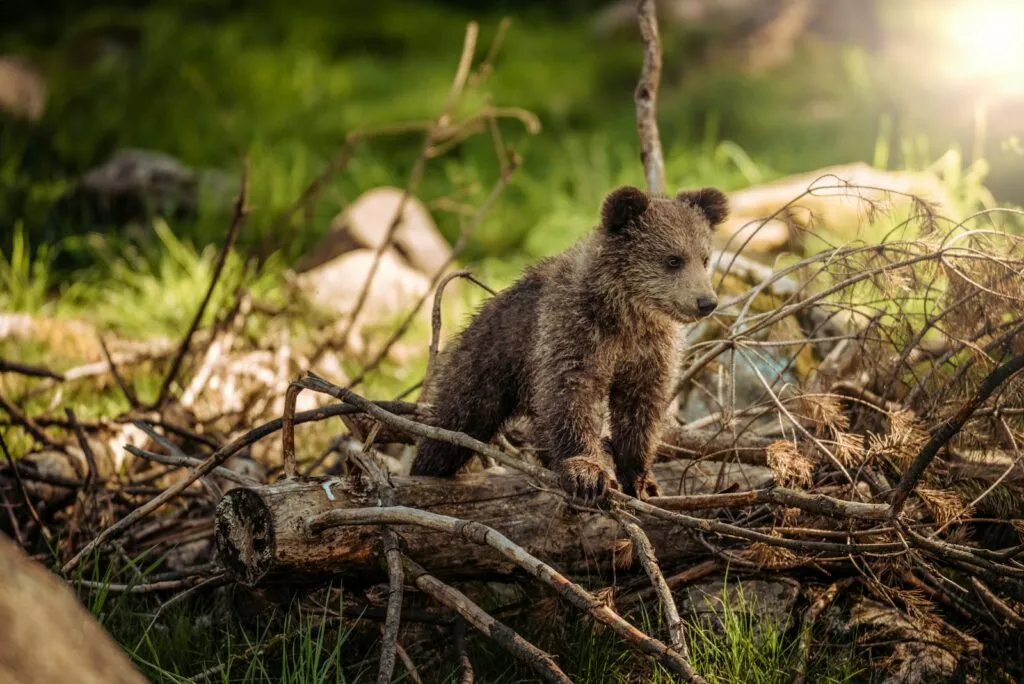Pursuing a career in a creative field is often perceived as a highly enviable endeavor by those who are — for lack of a more succinct term — on the outside looking in. I guess it makes sense given that something like 90% of people report being unsatisfied with their jobs. No matter what specific and varied factors contribute to this widespread unhappiness — whether it’s an unpleasant work environment, incompetent leadership, poor pay, or long hours — the thing that is shared universally amongst everyone is the desire to do something meaningful and of substance. In the absence of meaning and substance, passion and excitement, it’s easy to understand how any worker would become disenchanted with his or her job; and this isn’t the exclusive domain of 9-to-5ers. Despite the presumed freedoms afforded those who work in creative fields, it would be a mistake to conclude that creative types are immune to the same worries that haunt others.
Passion is…
As many of you reading this may be able to attest to, the perks enjoyed by creative types are often no match for the overpowering drag of losing your passion for the activity you’ve built so much of your life around — photography. You don’t even have to be a professional to experience the dreadful feeling of not having the spark you once had for your favorite hobby. One of the main reasons that losing your passion for something evokes such strong feelings has to do with the nature of passion itself. It has a power over you; it’s what drives you to spend inordinate amounts of time with your art, even to the point of neglecting food, sleep, and human interaction. Yet, passion is also what encourages you, teaches you to trust in yourself, shows you that what you have to offer is worthwhile. For better or worse, it is a constant companion, one so easily taken for granted…until it's gone.
Losing it
Up until this point, everything on your journey as a photographer has been more or less enjoyable; sure, there have been challenges along the way, but you overcame them in due time and continued to evolve as a photographer. But now — like a marathon runner — you've hit the proverbial wall. You feel your growth has stagnated; you find yourself unmoved by your own work and unable to figure out exactly why your interest is waning. To attempt to outline every possible reason for why one loses passion for their art would be a fool’s errand, but among the most commonly cited causes are:
- Feeling engulfed and overloaded by a seemingly endless stream of intriguing subjects. This probably comes across as a bit counterintuitive, but there are times when being surrounded by so much beauty can be a distraction. Everywhere you turn there is something you want to shoot and eventually you can lose focus. If that loss of focus turns into making mediocre photos, it is very likely that your passion will fade.
- Feeling unappreciated for the work you produce.
- Feeling overwhelmed by responsibilities and obligations unrelated to your art.
- Fear. Fear of failing tends to lead to fear of taking risks. Since passion and risk are inextricably intertwined, it should come as no surprise that fear carries with it the very real potential to drown a passion that once thrived.
- Creative block. Just like when you hear writers talk about writer’s block. There are times when you want to work on your craft and have at least an idea of where you want to go, but you can’t seem to get there. It’s as if all your creative mojo — and, by extension, your very being — has become walled-in, leaving you dismayed and frustrated.
Rediscovery
Again, the list of reasons why passion disappears could grow to be rather extensive. And while discerning those reasons is an important process, it is equally — if not more — important to accept that you’ve found yourself in this position and figure out some ways to return from your creative descent.
- Get back to what you love. Perhaps you have spent most of your time recently shooting architecture or landscapes; sure, those are subjects you like quite well, but if it’s portraiture that you really love then be sure to make as much time as you possibly can for it. Refocus your attention and energy on capturing the essence of whatever it is you love. Sometimes you just need a little reminder of what it was the drew you to photography to begin with.
- Explore and expand. It may sound cliché to be told to expand your horizons, but it might be precisely the boost you need. Try your hand at a genre of photography you have never tried before or take your camera to a location you’ve never shot before. There is never nothing to photograph. But if you do find yourself thinking that way, find a new way to make photographs of familiar subjects. Opening up new perspectives can be life-altering.
- This one is especially useful if you shoot professionally: when you start shooting primarily to earn money, chances are you’re going to burn out and stop shooting for love. So don’t overbook yourself. Yes, you have business-related obligations to meet, but remember that without a passion for photography, your end product will suffer and your clients will not be satisfied. It is to your advantage both personally and professionally to take good care of your creative spirit.
- Challenge yourself. There are many, many ways to go about this. One photographer I know, while in the midst of a creative depression, dug out an old film camera from his childhood, bought a couple rolls of film, and started shooting with the 30-plus year-old camera. It was the first time in his adult life he had shot film and, by his own admission, was an unexpected challenge. A challenge that helped reignite his passion for photography.
- Show off. There’s nothing wrong with a little shameless self-promotion. Photographs are meant to be seen; collect your best work and let people see it. Enter a contest, make a book, or join an online sharing community.
- Take your camera everywhere you go. Wouldn’t you hate for that long awaited moment of inspiration to strike or for the perfect shot to present itself and you’re without your camera? If at all possible, never leave home without it!
- Participate in a good cause. Offer your photographic services free of charge to a family who can’t afford studio portraits of their child. Volunteer to cover a local charity event. If you have old gear sitting around that you don’t use anymore, donate it to someone and teach that person how to use it. Taking the focus off of yourself and the wallowing you may be engaging in will allow you to put things back into perspective and lift the haze that has settled in around you. And if you are anything like me, you will find helping others to be profoundly inspiring; so, you’re also helping yourself.
- Don’t rush it. It is true that you have to put forth some effort into regaining your passion, but you also have to be patient and let it find its way back to you. Photographer Tony Luna makes the analogy of an athlete showing up for practice everyday, working hard in the gym, studying game film, and then on game day, executing, making good decisions, and just letting the game “come to him.”
If you are currently experiencing a lack of passion for photography, I don’t think it’s inappropriately presumptive of me to say that you have the support of everyone reading this; we’ve all been there. Hopefully you find something here that will be of use in helping you reestablish a good feelings about your art. And for those that have muscled through the arduous process of rekindling your passion for photography, feel free to share your wisdom in the comments.







10 Comments
I have loved photography “forever” but a teaching job, marriage, and two children helped me relegate the photography to the “kid stuff,” including my sister’s kids. That was a lot of years ago. Then three years ago, a couple of serious events in the lives of close family members hit. I had become a paper crafter, but I found that I could no longer create. One day, I took my camera and began driving country roads near my rural home. That was the beginning of the new passion for photography that has not died since.
Extraordinary article and very well written. I characterize photography as a hobby. Yet when I return to it I find it theraputic. It grounds and centers me.
I’m actually booking less weddings this year. I’m tired and need to catch my breath. I hate being on autopilot…
Just what I needed to read. Thank you! I have been busy with everything else but my true passion!
This is such a well timed article! Just what the doctor ordered.
I seem to have lost the ability to photograph (after 5 years of very happy snapping). I have even been totting up the 2nd hand value of my kit! You just might haved save me a couple of thousand £’s. thank you!
to me…and I am definitely in a rut that I can’t seem to shake…it seems it happened when I realized that the photographs that I work hard for really doesn’t matter (they do to me..but everyone wants their work appreciated)…people are out their taking pictures and then making them awesome art in photo shops. It seems that this has bothered me on levels I never expected it to. Used to be, if you were a photographer you had a skill behind the camera, it doesn’t seem that way any more, you skill has to be on the computer in the photo labs. That is just depressing to me. I have a few photo labs but no desire to become a photo lab photographer. Don’t know if any one else feels this way but to me, it is just sad. I think a lot of it too is, I put a lot of time and energy and money into my photography kit…and people are out there using WHAT?!? phones, tablets, anything that will take a shot…almost feels like true photographers are becoming ‘those things of the past’.
You can never guarantee what new developments will occur in any field that will turn it on it’s head. I’m studying in Computer Games Art at the moment and you’d cringe at how fast the technology we use constantly changes.
Photography is my hobby and my recommendation is learn these softwares and post editing processes, you’ll find that from one image you can get so much more! You’re right it isn’t just about taking an image anymore, it’s about taking that brilliant shot and maximising it’s potential, from a creative standpoint photoshop and the likes are fantastic tools.
Yes there are those that take low quality images on hand held devices, but this doesn’t mean they can hold a candle to the experienced photgrapher, especially one who has some decent gear to boot.
You say you don’t want to be a lab photgrapher, but all photography, digital or film requires post process work, now would you rather be fumbling around in a dark room or sat at a comfy chair ensuring that all the elements of your shots are exposed at just the right levels, the contrast is excellent and that each piece is polished to a high degree?
Granted photography is no longer a closed activity and is now open to more people, this is a good thing. It means there is more competition, new challenges to face, new methods to explore. If this seems daunting then good! It’s only when we’re out of our comfort zones that we can truly grow. Stagnation is the devil of any creative person. If you think you have nothing left to learn and are a master of your art, then it is at that very moment you become nothing but a student and what better gift could be bestowed upon you, than to explore your passion with child like naivety all over again? 🙂
Excellent article. My cameras have been stored away far too long. It’s time to bring them out again. Thank you for clearing away the clouds and helping reignite what I love.
Glad to hear you’ll be bringing your camera back out!
Excellent articles. I was a passionate film photographer. But it got stale. I sold off all my 35 mm stuff except for a Konica-Minolta SLR. Then I went digital. Nikon DSLR 18 to 55 and 55 to 200 zooms and a 35 mm prime. Digital has just never grabbed me. Or I lost before I went digital. I am retired now but but need a cane . I am missing my inspiration. Where is it? How to find it?